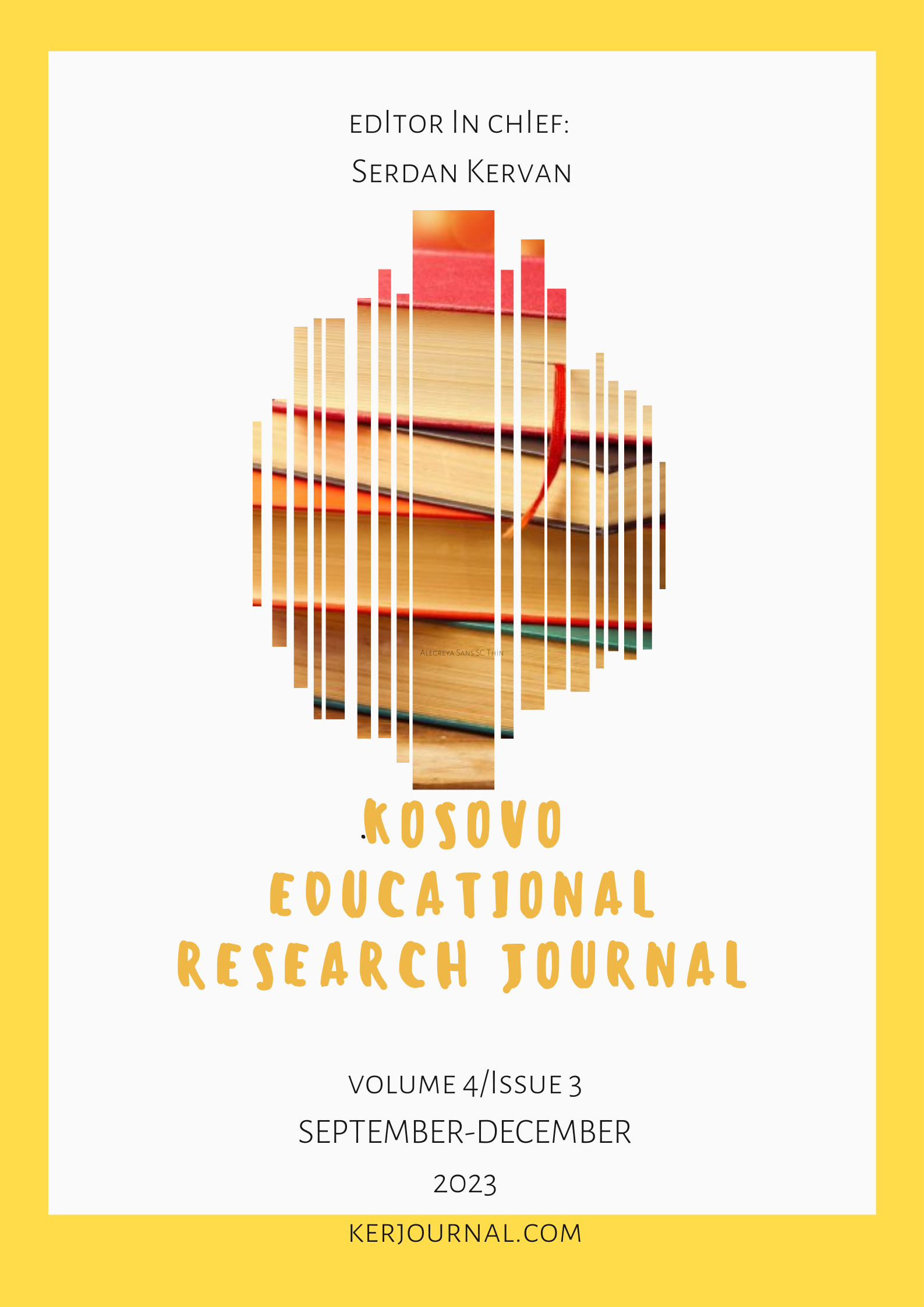Okul Öncesi Eğitimde Branş Derslerine Yer Verilme Durumu Hakkında Yönetici ve Öğretmenlerin Görüşlerin İncelenmesi
Author :
Abstract
Bu çalışmanın amacı okul öncesi eğitimde branş derslerine yer verilme durumu hakkında yönetici ve öğretmenlerin görüşlerin incelenmesidir. Bu çalışmada, nitel araştırma tekniklerinden fenomenoloji deseni kullanılmıştır. Çalışma grubunu 34 kişi (branş öğretmeni, okul müdürü ve okulöncesi öğretmeni) oluşturmakta olup, katılımcılar amaçsal örnekleme yöntemiyle belirlenmiştir. Çalışmada veri toplama aracı olarak yarı yapılandırılmış görüşme formu kullanılmıştır. Veriler 2022-2023 eğitim öğretim yılı içerisinde araştırmacı tarafından doğrudan yapılan görüşmeler neticesinde toplanmıştır. Elde edilen veriler araştırmanın kapsamı doğrultusunda betimsel analiz kullanılmıştır. Araştırma, branş derslerine erken tanışmanın avantaj ve dezavantajlarını, ders çeşitliliğinin öğrenci psikolojisi üzerindeki etkilerini, branş derslerinin sınıf öğretmeni veya uzman öğretmen tarafından verilmesinin farkını, ders paylaşımının öğretmen verimliliği üzerindeki etkilerini ve okul öncesi çocukların öğrenmesi gereken becerileri incelenmiştir. Araştırma sonuçları, branş derslerine erken tanışmanın geniş bir bakış açısı ve gelişimi destekleme avantajlarına sahip olduğunu ortaya koymaktadır. Ayrıca, ders çeşitliliği öğrencilerin beceri gelişimine katkı sağlarken, bazı olumsuz etkileri de beraberinde getirebilir. Uzman öğretmenlerin branş derslerini vermesi ve ders paylaşımının öğretmen verimliliğini artırabileceği belirtilmektedir. Okul öncesi dönemde çocukların öğrenmesi gereken beceriler arasında yaşam, bilişsel, dil, motor, sanat, teknoloji ve kültür becerileri bulunmaktadır. Okul öncesi eğitimde yapılması gerekenler arasında bilişsel, sosyal, fen, sanat, bedensel gelişim, keşfetme ve araştırma, değerler eğitimi gibi konular vurgulanmaktadır.
Keywords
Abstract
The aim of this study is to examine the views of administrators and teachers about the inclusion of branch courses in preschool education. In this study, phenomenology design, one of the qualitative research techniques, was used. The study group consisted of 34 people (branch teachers, school principals and preschool teachers) and the participants were determined by purposive sampling method. A semi-structured interview form was used as a data collection tool. The data were collected as a result of direct interviews conducted by the researcher during the 2022-2023 academic year. The data obtained were analyzed descriptively in line with the scope of the study. The research examined the advantages and disadvantages of early introduction to branch courses, the effects of course diversity on student psychology, the difference between branch courses taught by the classroom teacher or specialist teacher, the effects of course sharing on teacher productivity, and the skills that preschool children should learn. The results of the study reveal that early introduction to branch courses has the advantages of providing a broad perspective and supporting development. Moreover, while course diversity contributes to students' skill development, it can also have some negative effects. It is stated that having specialized teachers teach branch lessons and sharing lessons can increase teacher productivity. Life, cognitive, language, motor, art, technology and culture skills are among the skills that children need to learn in the preschool period. Cognitive, social, science, art, art, physical development, discovery and research, values education are emphasized among the things to be done in preschool education.
